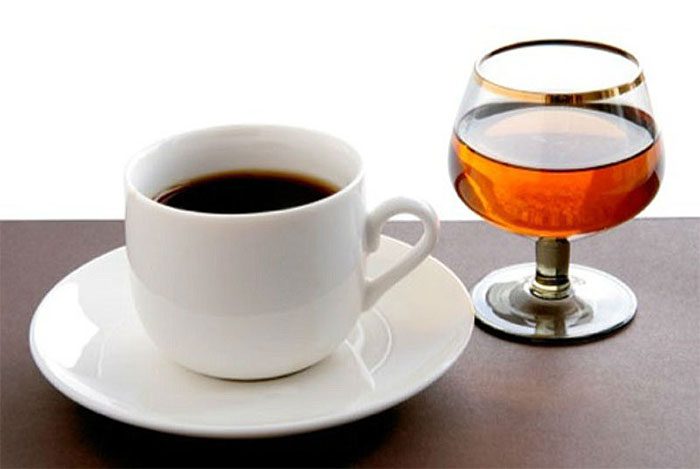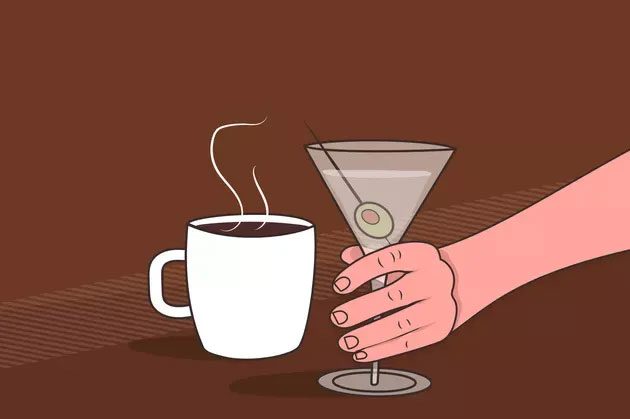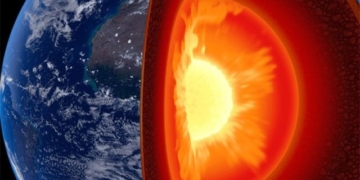In theory, mixing alcohol with caffeine seems like a great idea, as seen in cocktails like Espresso Martini or when mixing Diet Coke with rum. However, if you knew what was really happening inside your body, you might change your mind.
Reasons to Limit Mixing Alcohol with Caffeine
Caffeine is a stimulant that makes you feel more alert, while alcohol has both sedative and stimulating effects. According to the U.S. National Library of Medicine, alcohol is also a depressant that slows down brain activity and impairs your judgment, cognitive function, and memory.
1. Loss of Control
“Caffeine can blur the inhibiting effects of alcohol, causing you to drink one glass after another without restraint,” shares nutrition expert Nicole Rodriguez.
“It makes you drink more than you normally would and diminishes your self-control.”

Caffeine can blur the inhibiting effects of alcohol, making you drink more.
According to the Centers for Disease Control and Prevention (CDC), people who mix alcohol with energy drinks tend to drive distracted, exhibit violent behavior, and engage in riskier sexual activities compared to those who do not mix their drinks.
So, enjoying an Espresso Martini occasionally might be fine. But if you do not adhere to the CDC’s recommendations (limiting alcohol intake to a maximum of 2 drinks per day for men or 1 drink per day for women), you put yourself and others in danger.
2. Increased Blood Pressure and Heart Rhythm Disorders
Due to its stimulating and sedative effects, alcoholic beverages containing caffeine can stimulate the heart, which particularly affects those with heart conditions.
Bonnie Taub-Dix, author of *Read It Before You Eat It: Taking You from Label to Table*, states: “Caffeine itself is a stimulant, and alcohol can negatively affect blood pressure.”
Excessive consumption of alcoholic beverages can raise your blood pressure, according to the Mayo Clinic. Studies show that alcohol can elevate blood pressure in several ways.
According to a review in the Cochrane Database of Systematic Reviews, alcohol can increase the hormone renin, constricting your blood vessels. This stimulates vasopressin and aldosterone hormones, promoting water retention. The larger the blood volume in the vessels, the higher the blood pressure.
Alcohol has been shown to stimulate the sympathetic nervous system, increasing levels of norepinephrine (a neurotransmitter), which stimulates receptors in the heart, simultaneously increasing heart rate and blood pressure.
3. Worsening Symptoms of Anxiety and Depression
The link between alcohol and depression is well established. While initially, caffeinated alcoholic drinks may make you feel pleasant, they can worsen your anxiety and depression later on.
“Mixing alcohol with caffeine makes it more palatable and easier to drink. Thus, you tend to drink more, leading to increased heart rate, restlessness, and making it harder to sleep – even worse than drinking alcohol alone,” Rodriguez explains.
Taub-Dix notes that the euphoric feeling from drinking caffeine-mixed alcohol can also mask symptoms of depression and anxiety, leading you to drink more and deteriorate your health.
According to the National Institute on Alcohol Abuse and Alcoholism (NIAAA), individuals with depression and post-traumatic stress disorder often have a higher risk of developing alcohol use disorder (the inability to stop or control alcohol consumption).

Drinking too much alcohol or caffeine can increase your risk of dehydration.
4. Disruption of Digestive Organs
Both alcohol and caffeine have diuretic effects, meaning they eliminate salts and water from your body through urination. Rodriguez states that excessive consumption of either can put you at risk of dehydration. That’s why it’s best to drink alcohol with water to stay hydrated.
“And because caffeine stimulates the digestive tract, those with weaker stomachs may experience stomach pain or diarrhea from consuming alcohol mixed with caffeine,” Taub-Dix adds.
Moreover, according to a 2017 study in *Alcohol Research Current Reviews*, alcohol and its metabolites can promote intestinal inflammation and alter bacterial composition, potentially making you more susceptible to viruses and illnesses.
5. Disruption of Your Sleep
Taub-Dix states: “Alcohol may make you sleepy, but it doesn’t help you sleep deeply, and caffeine keeps you alert.”
According to Harvard Health Publishing, after a few hours, alcohol will increase levels of epinephrine (the stress hormone that raises heart rate), causing you to wake up more frequently at night. Mixing alcohol with caffeine makes it even harder to sleep.
Remember that when consuming caffeinated alcoholic beverages, you may struggle to get a good night’s sleep or experience stomach discomfort, especially if you are sensitive to caffeine. You may also feel slightly dehydrated, so be sure to drink plenty of water.


















































